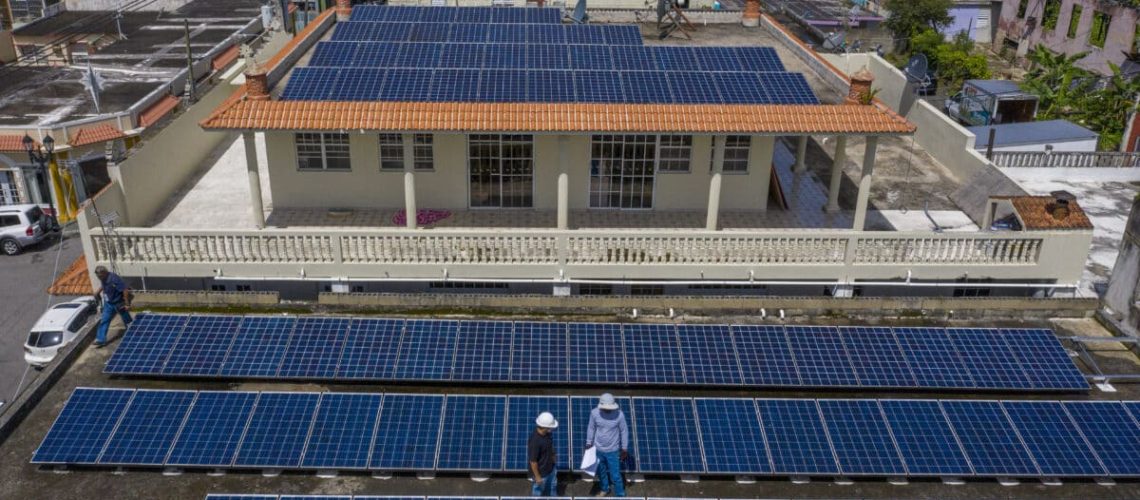Puerto Rico led the nation in per-capita residential solar installations last year, but continued progress is threatened because a law extending solar net metering through 2031 has been challenged by a federal oversight board.
Puerto Rico added more rooftop solar per capita than any U.S. state last year, said PJ Wilson, president of the Solar and Energy Storage Association of Puerto Rico (SESA-PR), on a webinar.
The U.S. territory has increased its renewable generation to 12% from 4% three years ago, he said, and could reach 18-20% next year, in comparison to the 40% goal set by Puerto Rico law.
Given current trends, Ohm Analytics Founder Chris Collins said that Puerto Rico will account for 10% of the entire U.S. market for residential solar in 2028.
Central to Puerto Rico’s future success with residential solar is a law that extended the territory’s net metering policy for solar through 2031. Yet that law, known as Act 10-2024, has been challenged by the Financial Oversight and Management Board (FOMB) for Puerto Rico, a body created by federal law.
The FOMB stated in a letter that the fiscal plan that it certified for Puerto Rico’s legacy utility known as PREPA requires the Puerto Rico Energy Bureau to determine whether to make changes to the net metering system. Because the energy bureau has not yet done so, FOMB said that Act 10 is “directly at odds” with the PREPA fiscal plan.
The FOMB included with the letter its resolution directing the Puerto Rico legislature and governor to repeal Act 10 or amend it “in a manner consistent with the fiscal plans.”
Positive impact
Wilson said that residential solar net metering “not only doesn’t have a negative impact on the finances of Puerto Rico, but it has a positive impact.”
Backing up that statement, SESA-PR released a report that assessed the financial value of net metered solar energy in Puerto Rico at $0.33 per kWh, substantially more than the net metering credit of $0.24 per kWh. The value of solar is mostly due to avoided energy costs of $0.27 per kWh, with additional value from avoided transmission and distribution costs and avoided reliability-related economic losses.
The energy consulting firm Gabel Associates prepared the report.
“Every net metering law in the nation,” Wilson said, was “created by local legislatures and local governors signing off to create a law. And the same thing happened in Puerto Rico in 2009. In 2019, there was a five-year extension to that law. That was legal. And in January, there was another seven-year extension to the law, which is being opposed by this unique federal agency, three months after the law was signed into effect.”
Noting that the FOMB was created to resolve debt issues of PREPA and other entities in Puerto Rico, Wilson expressed hope that once the Puerto Rico government submits its reply to the FOMB’s letter, FOMB will change its position and focus on PREPA, “the only agency for which debt is not settled.”
PREPA’s debt has been “negotiated down to less than $3 billion from over $11 billion,” Wilson said. “It seems within sight for the PREPA debt to be settled,” and “the oversight board needs to focus exclusively” on that “until it gets done.”
Wilson said the FOMB was established by federal law as a temporary entity “to help solve all the debt and then dissolve,” and that the oversight board has a federal mandate to support the economic growth of Puerto Rico. Estimating the annual revenues from Puerto Rico’s residential solar-plus-storage market at $1.5 billion, Wilson expressed hope that the oversight board “dissolves as quickly as possible while supporting the economic growth of Puerto Rico along the way.”



